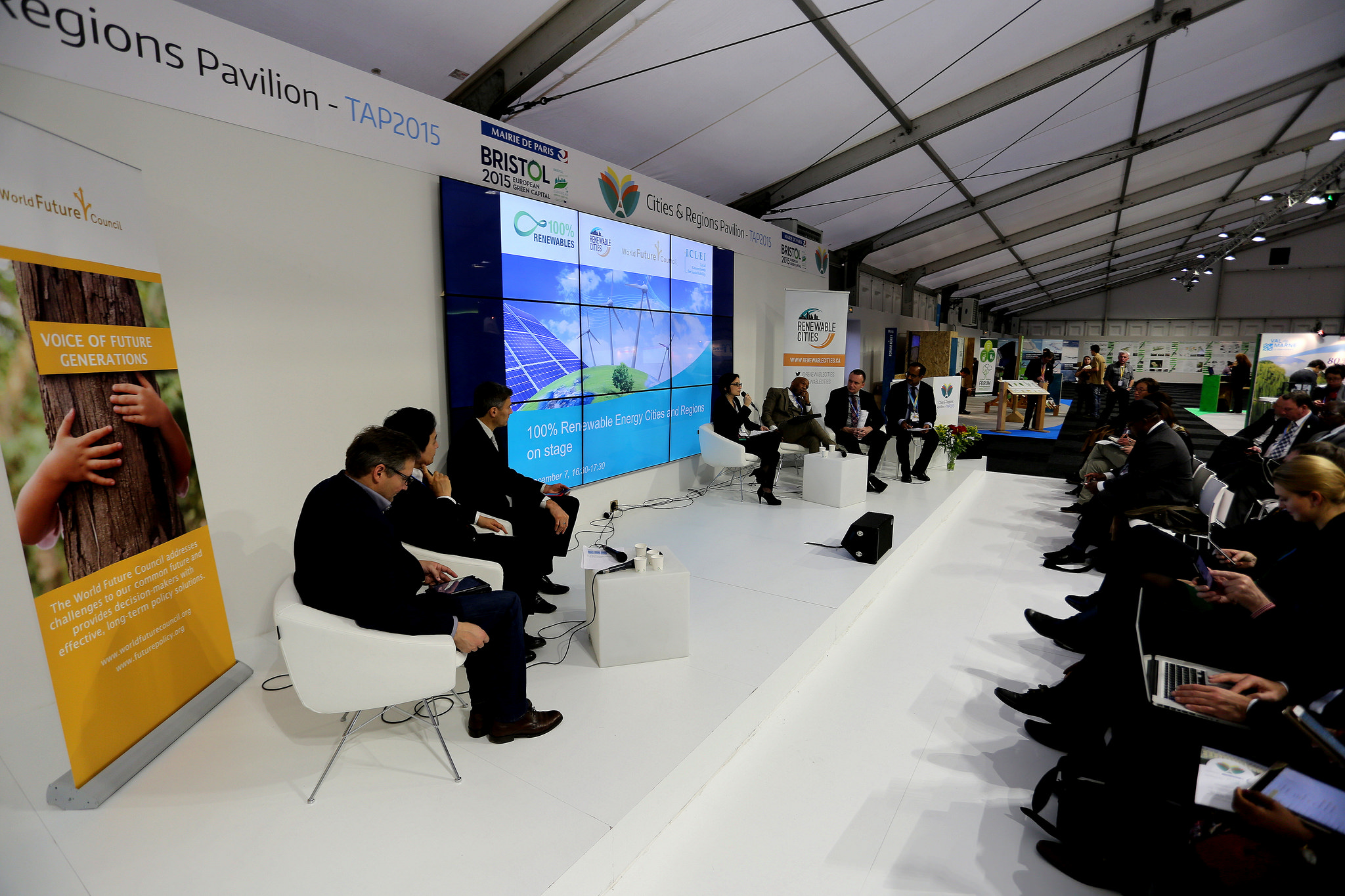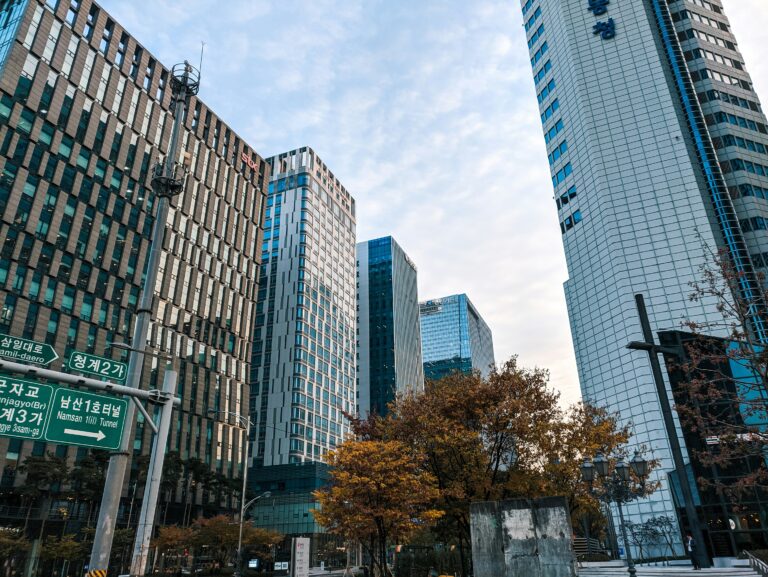ICLEI, Renewable Cities, World Future Council: Cities and Regions Moving towards 100% Renewable Energy
“What does it take? Will, partnership, pilots, vision, leadership,” said Milan Obradovic, Deputy Mayor of the City of Malmö, Sweden. The cities of Paris, Vancouver, Tshwane, Malmö and Jeju Province took the stage on Monday, 7 December at the Cities & Regions Pavilion to share with the audience strategies for a transition towards renewables. The political leaders in this open session also pointed to some common ingredients for success in triggering a commitment towards 100% renewable energy (RE).
Different policy instruments and infrastructure measures were identified as important pieces of the puzzle, covering a wide range of sectors. The policy package may include 100%RE targets, building codes and other regulations, incentives or subsidies such as the feed-in tariff. The infrastructure measures, meanwhile, may cover building retrofits, district energy, smart grids, electric vehicles, Bus Rapid Transit (BRT), generation of biogas from waste, and use of other sources of renewable energy such as geothermal and heat from waste water, among many other examples. Kgosientso Ramokgopa, Mayor of the City of Tshwane, South Africa, indicated that the City’s RE Strategy includes self-generation as a way to reach energy accessibility and affordability, and that demonstration projects play a key role, although more favorable national regulatory frameworks are needed. IRENA’s representative recognized the role which local governments can play in the deployment of renewable energy.
The Jeju Carbon Free Island Vision 2030 and the Green Big Bang Model of job creation can serve as example for other cities of approximately the same size to replicate. While Malmö, Jeju and Vancouver have adopted 100%RE targets, the City of Paris, represented by Deputy Mayor Célia Blauel, indicated a need “to change the scale, to plan for the 100% RE to come from the Metropolitan Area which is yet to be built”. Paris has committed to reducing greenhouse gas emissions by 70% by 2050 and is now exploring new energy targets. “We are doing this for the planet, but also because it is good for our citizens: lower energy prices, jobs, and better air quality,” said Deputy Mayor Blauel.
This session happened back-to-back with a dialogue workshop that gathered cities that have already made commitments to reach 100%RE, as well as cities that are interested in exploring what such transitions might mean to them. Cities from different regions of the world shared the challenges they face as well as their successes. These cities were Aspen, Australian Capital Territory, Byron Shire, Cape Town, Curitiba, Jeju province, Kaoshiung, Malmö, Medellin, Paris, Tshwane, and Vancouver. The conclusion was that sharing and peer-learning among cities is very helpful for moving forward.
Anna Leidreiter, Campaign Coordinator of Global 100% RE, commented: “Seeing the amount of cities taking action here at COP is the most encouraging signal we can send to the world. This can only be the beginning!” The open session, co-hosted by ICLEI, World Future Council and Renewable Cities, ended with an invitation for interested cities to connect with each other and to join the 100% RE Cities and Regions network. “We know it is possible [to reach a 100%RE target] and we are happy to see other cities, provinces and regions around the world, joining us in setting a very ambitious pace in going renewable,” said Mayor Gregor Robertson of the City of Vancouver.
For more information visit www.iclei.org/lowcarboncity/100re and http://go100re.net/
***
Featured photo: Rønland Windpark, Denmark, courtesy of Fanny Schertzer via Wikimedia.







